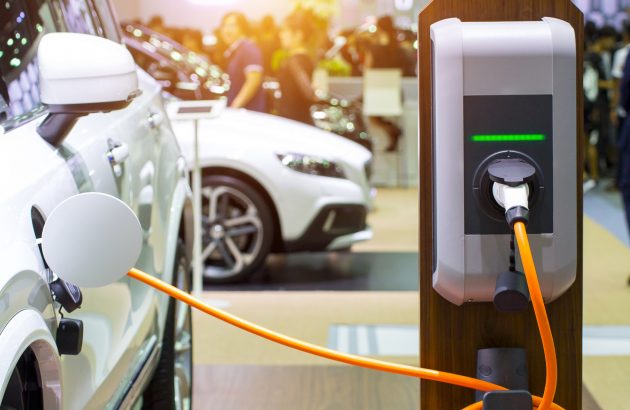
Feds invests in clean technologies for electric vehicles
by CM Staff
These investments support Canada's new mandatory target of 100% zero-emission light-duty vehicle sales by 2035

Electric vehicles/Electric cars
TORONTO — The Government of Canada announced a $12.7-million investment in six clean energy technologies projects to help put Canadians in the driver’s seat on the road to a net-zero future. The investments include:
- $4.95 million to Hydro One Limited to develop a pilot for heavy-duty electric truck charging stations in Ontario. Hydro One’s pilot for electric trucks will be a model for other utilities and businesses interested in pursuing solutions to electrify heavy-duty transportation across Canada.
- $2.5 million to the Toronto Transit Commission to implement a smart charging platform for its electric bus fleet. This project is expected to deliver a system to manage peak energy demand and reduce GHG emissions and overall infrastructure costs while optimizing the use of electric buses.
- $2 million to Opus One Solutions to demonstrate a shared economy model for EV chargers. The project will seek to understand and address the impact of residential EV charging on local networks, as well as assess the potential of repurposing private home chargers through a sharing platform for public use to support growing EV adoption.
- $1.32 million to Alectra Inc. to develop and implement an EV model for single-family and multi-unit residential buildings. The project will provide convenient and affordable access to EV chargers, manage energy cost increases and provide incentives for encouraging off-peak EV charging in the residential sector.
- $1.3 million to Geotab Inc. to demonstrate an enhanced SmartCharge Incentive system that includes price signals to allow EV owners to have different charge windows to avoid or limit popular charging times. A price signal allows for an additional incentive for EV owners to charge at a specific time to shift electrical loads at the grid level.
- $635,000 to Blackstone Energy Services Inc. to test drive a cost-effective vehicle-to-grid system that uses energy stored in EV batteries to provide cost savings to EV owners by encouraging them to discharge energy during peak electricity demand periods. The project will also provide cost savings to facility operators by offsetting power consumption during these periods.
“We’re giving Canadians the greener options they want to get to where they need to go,” said Seamus O’Regan Jr., Minister of Natural Resources, in a prepared statement. “We’re building a coast-to-coast network of electric vehicle charging stations from St. John’s to Victoria. This is how we get to net zero by 2050.”
Funded through Natural Resources Canada’s Green Infrastructure – Electric Vehicle Infrastructure Demonstration Program, these projects aim to accelerate the market entry of next-generation clean energy technologies by supporting demonstration projects for innovative technologies.
Since 2015, Canada has made a historic investment of over $1 billion so far to make EVs more affordable and charging infrastructure more locally accessible. These investments are building a coast-to-coast network of fast chargers and installing chargers in local areas where Canadians live, work and play. The government also provides incentives of up to $5,000 to help Canadians buy EVs and full tax write-offs for businesses purchasing them.
These investments support Canada’s new mandatory target of 100% zero-emission light-duty vehicle sales by 2035. Driving down transportation emissions is critical to achieving Canada’s ambitious climate change targets and requires a combination of investments and regulations to support Canadians and industry in this transition.